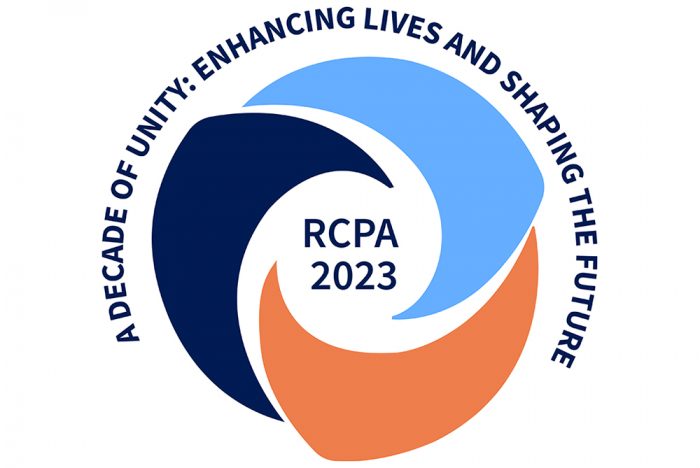The Centers for Medicare and Medicaid Services (CMS) released the fiscal year (FY) 2024 inpatient rehabilitation facility (IRF) prospective payment system (PPS) final rule in the August 2, 2023, Federal Register. Some of the key provisions contained in the final rule include:
Payment and Coverage Provisions
- FY 2024 Market Basket Update and Productivity Adjustment: For the FY 2024 IRF PPS payment adjustments, CMS estimates that IRFs will see a 4.0 percent increase in total payments (totaling an increase of $355 million) relative to FY 2023. This update is a result of a 3.6 percent market basket update, minus a 0.2 percent productivity adjustment.
- 2021-Based IRF Market Basket: The final rule rebases and revises the IRF market basket to reflect a 2021 base year (which reflects more recent data). Moving forward, CMS says that it will “continue to monitor the Medicare cost report data as they become available” and consider updates to the IRF market basket in future rulemaking.
- Case Mix Groups: Consistent with the proposed rule, CMS estimates that the vast majority of cases will be in case mix groups (CMGs) and tiers that will see a change of less than 5 percent in FY 2024.
- Outlier Threshold: CMS is finalizing the outlier threshold amount of $10,423, which is estimated to be approximately 3 percent of the total estimated aggregate IRF payments in 2024. CMS also notes that finalized changes in the Average Length of Stay (ALOS) values for FY 2024, compared with FY 2023 ALOS values, are small and do not show any particular trends in IRF length of stay patterns.
- Wage Adjustments and Labor-Related Share: CMS finalized proposals to update the wage index adjustments using the same methodology and factors as previous updates. Based on forecasts, the total labor-related share for FY 2024 is 74.1 percent (the sum of 70.3 percent for operating costs and 3.8 percent for the labor-related share of Capital-Related costs).
- Impact Estimate: Overall, the estimated payments per discharge for IRFs in FY 2024 are projected to increase by 4.0 percent, compared with the estimated payments in FY 2023. IRF payments per discharge are estimated to increase by 4.0 percent in urban areas and 3.6 percent in rural areas, compared with estimated FY 2023 payments. Payments per discharge to rehabilitation units are estimated to increase 4.5 percent in urban areas and 3.9 percent in rural areas. Payments per discharge to freestanding rehabilitation hospitals are estimated to increase 3.7 percent in urban areas and 2.8 percent in rural areas.
- Modifications for Excluded IRF Units: Consistent with the proposed rule, CMS is finalizing new flexibilities for rehabilitation units that are seeking to be excluded from the acute inpatient PPS and paid under the IRF PPS for the first time. Hospitals will now be allowed to open a new IRF unit (and get paid as such) at any time within the cost reporting year, instead of being limited to only the beginning of a cost reporting period. The hospital must notify the CMS Regional Office and Medicare Administrative Contractor (MAC) in writing at least 30 days before the change. If a unit becomes excluded during a cost reporting year, that change must remain in effect at least through the rest of that cost reporting period.
Quality Reporting Program (QRP) Provisions: CMS finalized all of the proposed changes related to quality measures for the IRF QRP put forth in the proposed rule. The following changes have been finalized for the IRF QRP:
- Implementation of the New COVID-19 Vaccine for Patients: Data collection for the “Percent of Patients/Residents Who Are Up-to-Date” will be placed on an updated IRF-Patient Assessment Instrument (PAI) and begin with discharges on or after October 1, 2024, for use in the FY 2026 IRF QRP.
- Update of the COVID-19 Vaccination Measure for Healthcare Personnel: CMS finalized its proposed modification of the COVID-19 Vaccination Coverage among Healthcare Personnel (HCP COVID-19 Vaccine) measure to include the CDC “up-to-date” consideration for reporting purposes. Data collection for this modification is to begin October 1, 2023, for use in the FY 2025 IRF QRP.
- Implementation of the New Discharge Function Score Measure: No new data collection is required, but the calculations and reporting of this measure will begin with discharges on or after October 1, 2023, for use in the FY 2025 IRF QRP.
- Measure Removal: Three measures have been removed from the IRF QRP and will no longer require the collection of certain data elements for discharges on or after October 1, 2023:
- Application of Percent of Long-Term Care Hospital Patients with an Admission and Discharge Functional Assessment and a Care Plan That Addresses Function;
- IRF Functional Outcome Measure: Change in Self-Care Score for Medical Rehabilitation Patients (CBE #2633); and
- IRF Functional Outcome Measure: Change in Mobility Score for Medical Rehabilitation Patients (CBE #2634).
- New Public Reporting: CMS announced the start of public reporting for the following measures:
- Transfer of Health (TOH) Information to the Provider — Post-Acute Care (PAC) Measure (TOH-Provider) beginning with September 2025 Care Compare refresh (even though proposed rule and other language in final rule stated September 2024 Care Compare refresh). CMS staff has been alerted to this discrepancy.
- TOH Information to the Patient — PAC Measure (TOH-Patient) beginning with September 2025 Care Compare refresh (even though proposed rule and other language in final rule stated September 2024 Care Compare refresh).
- Discharge Function Score Measure — Beginning with the September 2024 Care Compare refresh or as soon as technically feasible.
- COVID-19 Vaccine: Percent of Patients/Residents Who Are Up-to-Date Measure — Beginning with the September 2025 Care Compare refresh or as soon as technically feasible.
CMS also released a fact sheet on the final rule. The data files associated with the final rule, including the wage index tables, the rate setting data for each IRF, and the final tables for case-mix groups, relative weights, and average lengths of stay are also available. Unless otherwise noted above, the provisions in the final rule will take effect on October 1, 2023.


















